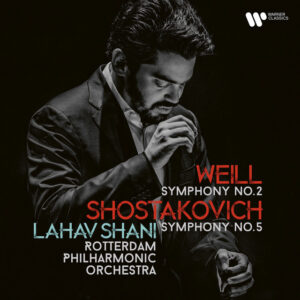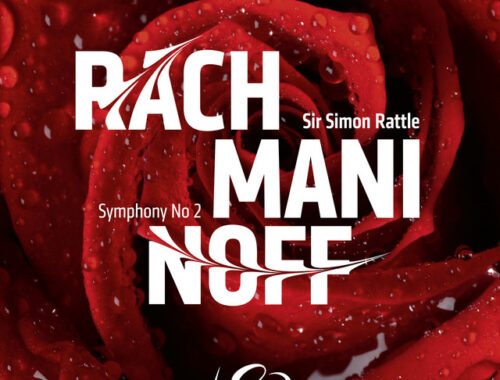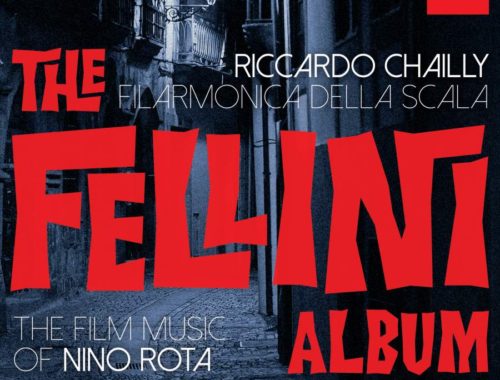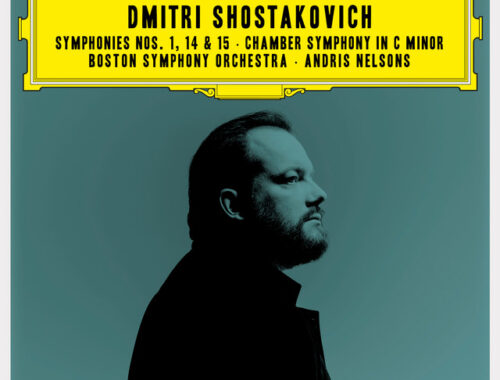GRAMOPHONE Review: Weill Symphony No. 2 & Shostakovich Symphony No. 5 – Rotterdam Philharmonic Orchestra/Shani
 An eye (and ear) catching coupling. Shostakovich’s Fifth Symphony is front and centre of the core repertoire these days – though not always in performances as good as this one – but we rarely hear Kurt Weill’s two symphonies and the Second is a piece of real significance in the musical history of its time bridging as it does Weill’s two lives in Germany and America.
An eye (and ear) catching coupling. Shostakovich’s Fifth Symphony is front and centre of the core repertoire these days – though not always in performances as good as this one – but we rarely hear Kurt Weill’s two symphonies and the Second is a piece of real significance in the musical history of its time bridging as it does Weill’s two lives in Germany and America.
Indeed the strident call to arms at the outset of this ‘Symphonic Fantasy’ together with its many pages of motoric urgency come upon us like a metaphor for Weill’s flight from Germany where the writing was very much on the wall. He wrote the symphony in Paris in 1933/4 but it is the stark realisation of what he was leaving behind that gives it its imperative, dare I say martial, character. In the lyric contrasts – like the melody for solo trumpet in the first movement – we can almost hear the accompanying accordion of those celebrated Brechtian street songs, gritty and urban, and the funeral oration for trombone in the oppressive central Largo is unmistakably Weillian and strangely monochromatic like one of those wartime newsreels.
The Israeli conductor Lahav Shani (Principal Conductor of the Rotterdam Philharmonic) is new to me and I am mightily impressed by his lean and taut way with a piece he so clearly holds a special place for in his portfolio. The finale has real teeth and besides its almost imperceptible transformation into a goose-stepping march one might see the flashes of piccolo as glinting menacingly off Mack the Knife’s switchblade. I personally love how Weill assimilated himself into American culture and have always felt that his best work in music theatre happened there. Perhaps critics of his concert work did him an unintentional favour. Good to to hear this again, though, and better yet to hear it served so well.
But hot on its heels is an account of Shostakovich’s Fifth Symphony where the feeling is refreshingly one of rediscovery. From bar one there is an inescapable and unremitting tension. Shani has a wonderful nose for atmosphere and the chilled first subject seems to find its own space in a desolate place. The second subject brings a glimmer of hope and warmth but the theatre of war is soon upon us and Shani’s darkly imposing Rotterdam brass bring home the development thrillingly. There’s more than a touch of the Hebraic in the big unison release here and the long celeste-flecked coda is mesmerising.
Shani reminds me just how achingly beautiful the slow movement of this piece is. The atmosphere is again distilled and super-spatial with string playing that leans wholeheartedly into the harmonic pull of the music – and honestly I don’t think I have ever heard the transition into the hushed final pages sound quite as breath-taking (and that despite some extraneous rustling from the audience).
The much-contested (though not so these days) final pages of the finale are, of course, signalled from brutish march at the outset but Shani takes no prisoners when it comes to ramming home Shostakovich’s hollow victory. The repeated A’s are possessed of an insanity that it is impossible to misconstrue however much the audience’s cheers would have us think otherwise.
A terrific disc.




